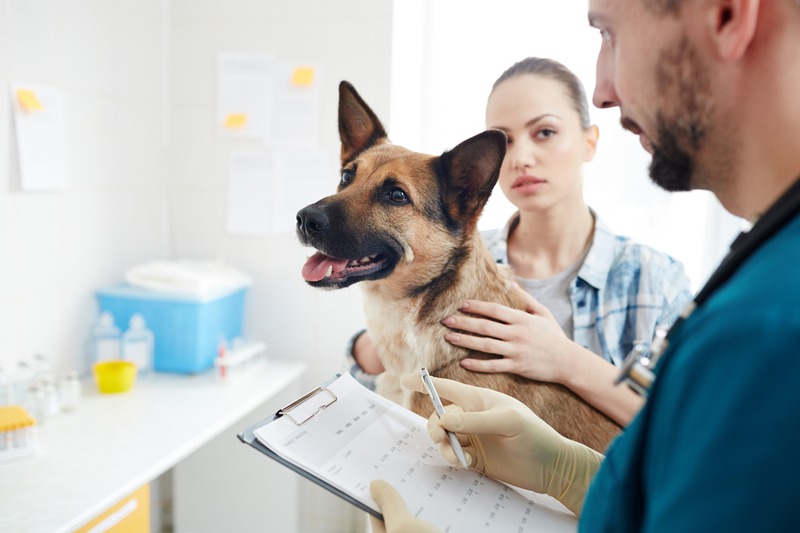As pet parents, we’re always on the lookout for ways to keep our furry friends healthy and happy. And just like in humans, prevention is better than cure when it comes to pet health. But when is the right time to start preventive pet care? Should we wait until we see a problem or start as early as possible? In this article, we’ll delve into the intricacies of preventive pet care, why it’s vital, and the optimal time to commence this journey with your pet.
Understanding Preventive Pet Care
Preventive pet care is all about taking proactive steps to ensure the health and well-being of your pet. This includes regular check-ups, vaccinations, parasite control, proper nutrition, exercise, and dental care. The goal is to catch any potential health issues early or, better yet, prevent them from occurring in the first place.
Young Pets
Puppies and kittens are just like human babies; they need a lot of care to grow into healthy adults. The best time to start preventive care is the moment you bring your new pet home. At this stage, establishing a relationship with a vet, like finding a good kitten vet in Douglasville, can make all the difference. They can guide you on:
-
The appropriate vaccination schedule
-
Parasite prevention plans
-
Nutrition tailored to your pet’s breed and age
-
Basic training and socialization tips
-
Spay and neuter advice
This foundation sets your pet on a path towards a healthier life.
Adult Pets
As pets grow older, their needs change. Continuing with routine check-ups and preventive measures becomes crucial. During adulthood, focus on:
-
Maintaining a balanced diet
-
Monitoring weight to prevent obesity
-
Dental cleanings and care
-
Regular exercise suitable for their age and breed
-
Continuous monitoring for early signs of diseases
Regular visits to the vet are essential to adjust care as your pet ages.
Senior Pets
Senior pets have a special place in our hearts, and their healthcare needs are unique. As your pet enters the twilight years, preventive care includes:
-
More frequent health checks for early detection of age-related issues
-
Adjusting their diet to their slower metabolism
-
Gentle exercise to keep them mobile
-
Managing chronic conditions
Regular vet visits allow you to adjust their care plan as needed.
Types of Preventive Care
Now that we’ve established when to start preventive care let’s look at the types available and how they contribute to your pet’s health.
Vaccinations: Essential for Immune Defense
Vaccinations are crucial in protecting your pet from various diseases. Starting with a puppy or kitten series and then moving on to adult boosters, vaccines are one of the simplest ways to avoid serious health issues.
Parasite Prevention: A Year-Round Task
Parasites like fleas, ticks, and heartworms can cause significant health problems. A good preventive routine will include monthly treatments to keep these pests at bay.
Spaying or Neutering: Benefits Beyond Birth Control
Spaying or neutering can prevent health issues like uterine infections and testicular cancer. It’s more than just population control; it’s a step towards a longer, healthier life for your pet.
Dental Care: More Than Just Fresh Breath
Dental disease can lead to serious systemic health issues. Regular dental check-ups and cleanings, along with daily tooth brushing, are key components of preventive care.
Regular Check-ups: The Heart of Prevention
Annual or bi-annual vet visits are essential. They allow your vet to catch any potential issues early. During these visits, you can learn more about a veterinary lab and the various diagnostic tools used to monitor your pet’s health.
Bonus Tips for a Healthy Pet
While regular vet visits and the right treatments are a large part of preventive care, there’s more you can do at home to keep your pet in tip-top shape.
-
Nutrition: Fueling Their Health: A balanced diet is the cornerstone of good health. Work with your vet to find the best food for your pet’s specific needs and life stage.
-
Exercise: Keeping the Body Moving: Regular physical activity keeps your pet fit and can ward off issues like obesity, which often leads to other health problems.
-
Bonding Time: The Emotional Connection: Quality time spent playing, grooming, and just being with your pet strengthens your bond and can also help alert you to any changes in your behavior or health.
Incorporating New Treatments
The world of veterinary medicine is always advancing, and new treatments are constantly emerging.
Embracing Modern Medicine
One example of a modern treatment method is laser therapy treatment for pets. This painless technique can help manage pain, reduce inflammation, and speed up healing. Ask your vet whether this could be a suitable addition to your pet’s preventive care plan.
Final Thoughts
Taking care of your pet’s health early on is crucial for their well-being. Choose a good vet, like a trusted kitten vet, and consider treatments such as laser therapy to keep your pet healthy. Education about veterinary care helps you make the best choices for your pet. Pets have different needs as they grow, so regular vet visits, vaccinations, proper diet, exercise, and love are key to their happiness. Start preventive care from the start and enjoy a long, joyful life with your pet.

